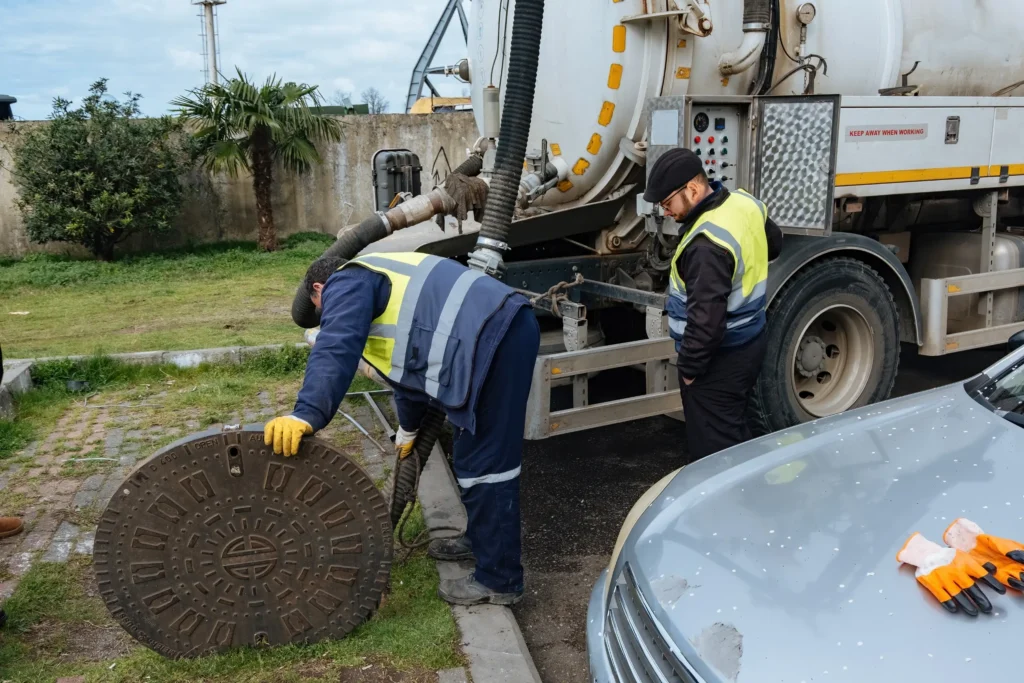A septic system is one of the most critical—and often overlooked—parts of your home’s infrastructure. Without regular maintenance, minor issues can turn into costly failures. The key to long-term system performance is seasonal maintenance, carefully aligned with the changing conditions of the year. With a consistent approach, homeowners can avoid backups, protect their drain fields, and maximize the lifespan of their septic tanks.
Below is a detailed, seasonal septic maintenance checklist that ensures optimal system performance year-round.
Spring Septic Maintenance Tasks
1. Schedule a Professional Septic Inspection
Spring is the ideal time to assess winter damage and prepare for the increase in water usage as temperatures rise. Hire a certified technician to inspect tank levels, connections, and drain field health. Look for any signs of cracked lids, frost damage, or overflowing water in the yard.
2. Test and Inspect the Drain Field
Melting snow and spring rain can saturate the soil, putting your drain field at risk of hydraulic overload. Walk your yard and look for unusually green grass, standing water, or soft patches, all of which may indicate a failing drain field.
3. Pump the Septic Tank (If Needed)
If your system hasn’t been pumped in the last 3–5 years, spring is a great time to do it. Warmer weather allows for easier access to the tank, and professionals are less likely to be overloaded with emergency calls.
4. Check for Tree Root Intrusion
Spring is prime time for root growth. Inspect areas around your tank and pipes for invasive roots, especially if large trees are nearby. Roots can crack tanks and collapse lines if not managed early.
Summer Septic Maintenance Tasks
1. Be Mindful of Water Usage
High summer temperatures often come with increased water use—pool refills, gardening, washing cars, guests visiting for the holidays. Spread out water-intensive activities throughout the week to avoid overloading the system.
2. Clean Grease Traps and Filters
If your septic system includes a filter or effluent screen, summer is the time to clean or replace it. A clogged filter can lead to slow drainage and system backups.
3. Protect Your Drain Field from Traffic
With more foot traffic and lawn equipment in use, it’s important to keep heavy machinery, vehicles, or even tents and above-ground pools off the drain field. Compression can compact soil and hinder proper wastewater dispersion.
4. Inspect Septic Lids and Risers
Use the good weather to inspect or replace tank lids and risers. Ensure they are watertight, pest-resistant, and marked for easy location. Consider upgrading to locking lids to prevent accidents with children or pets.
Fall Septic Maintenance Tasks
1. Schedule Annual Septic Pumping (If Not Done Yet)
If you didn’t pump in spring, fall is the last call before frozen ground makes it difficult. Pumping the tank before winter ensures there’s enough space for winter use and helps prevent cold-weather failures.
2. Divert Roof and Surface Water
Clear your gutters and redirect runoff away from the septic area. Too much water from fall rains or melting snow can oversaturate your drain field, making it less effective.
3. Prepare Landscaping Around the System
Trim back trees and bushes near your tank and drain field. This prevents winter root growth and gives technicians easier access if a winter emergency arises. Fall is also a great time to seed grass over the drain field to promote good cover.
4. Winterize Exposed Pipes
If you have parts of your system above ground (such as pump stations or effluent lines), make sure they are insulated or heat-wrapped to prevent freezing and cracking.
Winter Septic Maintenance Tasks
1. Reduce Indoor Water Usage
In cold climates, your system is at its most vulnerable during the winter. Be careful not to overwhelm it with excessive laundry, long showers, or frequent dishwasher cycles. Overuse during winter can cause a frozen drain field or a blocked outlet pipe.
2. Avoid Snow Compaction Over Drain Field
Avoid driving or piling snow over your drain field. Compressed snow can lead to slower thawing, reduced soil absorption, and even freezing of effluent lines.
3. Monitor for Warning Signs
Pay close attention to symptoms like slow drains, bad odors, or gurgling toilets, which could indicate that your system is having trouble. Cold weather limits access to the tank, so catching problems early is critical.
4. Keep Access Points Clear
If you experience a septic emergency during the winter, technicians will need quick access to your tank. Regularly shovel paths to your tank lids and control panels. Mark them with stakes if snow is expected.
Bonus Tips for Year-Round Septic Health
- Install Water-Efficient Fixtures: Reduce water waste and lessen strain on your system.
- Use Septic-Safe Products Only: Avoid anti-bacterial soaps, bleach-heavy cleaners, and chemical drain openers.
- Keep a Maintenance Log: Track inspections, pump-outs, repairs, and issues to better predict your system’s needs.
- Educate Everyone in the Home: Make sure all family members understand what can and cannot go down the drains.
When to Call a Septic Professional
While homeowners can manage many routine tasks themselves, professional septic companies play a vital role in keeping systems efficient and code-compliant. You should call a pro if:
- Your tank hasn’t been inspected in over three years
- You notice persistent odors or pooling water
- Drains are slow or toilets won’t flush
- You’re unsure whether it’s time to pump
- You’re buying or selling a home with a septic system
Routine seasonal maintenance is far more affordable than emergency service or full system replacement.
Conclusion: Stay Ahead with a Seasonal Septic Maintenance Plan
Following a year-round septic maintenance checklist helps protect your property, health, and investment. A little planning each season goes a long way in preventing backups, extending your system’s life, and saving you from unexpected headaches.
If it’s been a while since your last inspection or you’re unsure where to start, schedule a consultation with a local septic expert today.
#SepticMaintenance #SeasonalSepticTips #SepticSystemCare #HomeMaintenanceChecklist #PreventSepticFailures

